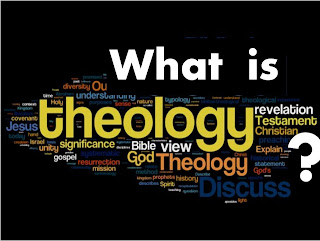You already do theology, whether you know it or not. I can’t stress that enough. Regardless of your personal convictions concerning the existence of God, you will undoubtedly hold an opinion about His meaning and relevance. Whether He actually exists or merely constitutes an idea in the minds of His followers is quite beside the point.
If you believe anything about the divine, or think anything about religious faith and practice, then it’s rather
undeniable I’m afraid: you are a
theologian.
Of course, this requires an explanation as to what theology precisely entails. In this post and in those that are to follow I will do my best to offer one. I will endeavour to do so as simply and as succinctly as possible – after all, this is Theology 101. [1] We’ll look at the history of theology and its various expressions. We’ll look at the tools of its trade, and, particular to this blog, we’ll examine theology’s relationship with apologetics. For now, let’s return to that contentious statement that we are all, in fact, theologians.
The word ‘theology’ is made up of two Greek terms: theos (θεός) and logos (λόγος). The former we translate as ‘God’, and the latter we translate as ‘word’. Theology quite literally concerns itself, therefore, with speech regarding the divine. [2] By its widest definition, the slightest engagement with the subject of religion or religious belief forces you to do theology.
However, the term itself has had a colourful
history and has denoted a variety of things at different times. Prior to
Christianity, it was used by the Greeks to refer to the speech of the poet
announcing deity. [3] The term was
also employed by Philo (a Jew who died c. 50AD) to describe Moses, seeing as he
literally proclaimed the words of God. [4]
Later, the early Church would use theologia
to describe not only knowledge concerning God, but also their experience of
Him. In this sense, the word ‘theology’ has been used to refer to speech from
or about the divine, but it has also been used doxologically – to refer to matters of worship and religious
experience.
Shall we therefore establish a basic,
elementary definition before we proceed? Let’s agree on this: Theology concerns itself with speech about God, with the speech of God, and with the variety of
experiences that are said to derive from
Him.
Some of us may choose to study theology in an
academic context. Others may explore theology in an ecclesial setting, whilst
others take up the interest on a purely private basis. But one thing is
certain: although the vast majority of us are not even aware of our interest,
we are all theologians.
So, since we’re all doing theology, we may as
well learn what it’s about. Welcome to Theology 101.
Next time: Why is Theology Important?
--------------------------------------------
[1] I will, however, supplement each post with a handful
of footnotes, providing extra detail for the especially curious.
[2]
By the same token, it may also concern itself with the speech of the divine. In a subsequent post,
we’ll discuss what this means in greater detail.
[3]
See Plato’s Republic 379a.5-6.
‘Theology’ was also used by Aristotle to refer to the metaphysical discipline
of philosophy, as it pertained to divine matters (see Aristotle’s Metaphysics 1025a.19 & 1064b.3). For
these details and more, consult Wolfhart Pannenberg’s Systematic Theology: Volume 1 (T&T Clark, 1991).
[4]
See Philo’s De Vita Mosis 2.115.
--------------------------------------------
Further
reading:
·
Ford’s Theology: A Very Basic Introduction.
·
McGrath’s Christian Theology: An Introduction.
·
Migilore’s
Faith Seeking Understanding.
·
Pannenberg’s
Systematic Theology: Volume 1.


No comments:
Post a Comment